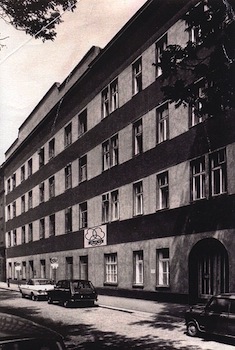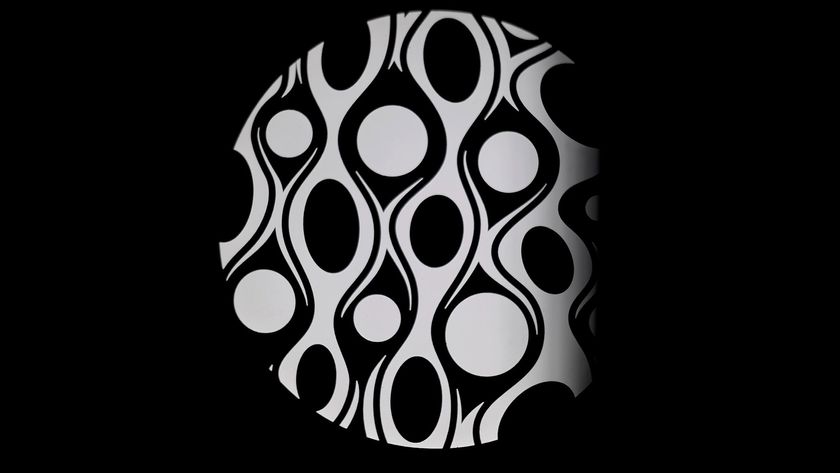HarmanAKG is celebrating its 65th company anniversary in June, 2012.
When founded, AKG’s core business was to equip cinemas with loudspeakers, film projectors and light meters. Görike built the loudspeakers and projectors with a team of five employees in a small rented basement.
Founded in 1947 by two Viennese, physicist Dr. Rudolf Görike and engineer Ernst Pless, Akustische und Kino-Geräte Gesellschaft mbH, shortened to AKG in 1965, is a manufacturer of high-quality headphones, microphones and wireless systems for professional users. Since 1993, AKG has been a part of Harman, distributing its products in more than 140 countries.
When founded, AKG’s core business was to equip cinemas with loudspeakers, film projectors and light meters. Görike built the loudspeakers and projectors with a team of five employees in a small rented basement. Pless supplied the cinemas with the finished products in exchange, more often than not, for food or cigarettes, rather than currency. In years following, the product range became more tailored to markets in high demand, such as car horns, door intercoms, carbon capsules for telephones, second headsets for phones and cushion speakers. Radio stations, theaters, jazz clubs and cabarets used the first homemade AKG microphones within the first year of the company’s conception.
AKG’s first patents included the moving coil technology and principle of mass loaded membranes. AKG achieved an international breakthrough with the development of its first dynamic microphone, the D12. In 1955, the company established a subsidiary in Germany. At the time, the reputable producers of recording devices, Philips, Grundig, Uher, Loewe, Opta, Nordmende and Telefunken, etc., obtained their microphones from AKG. The majority of AKG’s customers were based in Germany and the supplier in Austria. By the end of the 50’s, AKG had built an international network of distribution partners.
In the late 1960’s, AKG entered the Far East and Latin America markets. As TV was steadily replacing cinema as the source for information and entertainment, AKG decided to fade out cinema devices and concentrate on its strength – the construction of mobile electro-acoustic devices. A new market had been created through AKG’s production of portable reverberators. The 1960’s also introduced to the soon-to-be legendary K141 headphones, which had a high demand through the studio and high-end hi-fi segments.
AKG established the construction of high-quality pickups for record players in the 1970’s, but withdrew from that segment with the introduction of the compact disc and the start of the digital age. Görike and Pless invested a significant amount of time and money in R&D at this time to boost the development of telecommunications pieces, transistor mouthpieces and earphones. The success of this investment became a key source of revenue in the 70’s. In 1974, AKG held 1,000 patents.
During the late 1970’s, digital technology became a large piece of the product portfolio of AKG. The company was able to demonstrate the competence acquired in the digital era when it equipped the 1980 Olympic games in Moscow with the TDU 7000 time-delay unit. The TDU 7000’s interface handled up to eight audio signals, simultaneously running input and output.
AKG became a public company, becoming listed on Vienna’s stock exchange in 1984. In 1993, Harman international Inc. acquired AKG and 76 percent of its shares. The following year, Görike passed away and Harman acquired the remaining 24 percent. Alongside AKG, such esteemed brands, such as Becker, BSS, Crown, dbx, DigiTech, Harman Kardon, Infinity, JBL, Lexicon, Mark Levinson, Revel and Soundcraft are owned by Harman. That same year, AKG moved to its current headquarters in Vienna’s 23rd district.
To reduce costs and remain competitive in a harsh environment, in subsequent years AGK shifted parts of its productions to locations with lower wage costs. The entire product development and the production of sensitive products are today still carried out at the Viennese location in Lemböckgasse.
Along with the systematic expansion of sales and distribution channels and the optimization of production, the immense spirit of innovation of AKG's employees remains a key factor. In 2008, AKG was awarded the Austrian export prize for foreign trade.
In the last financial year, AKG Acoustics GmbH managed to increase its revenues by 30 percent and its profits by 300 percent – its best year-end result in 20 years.










